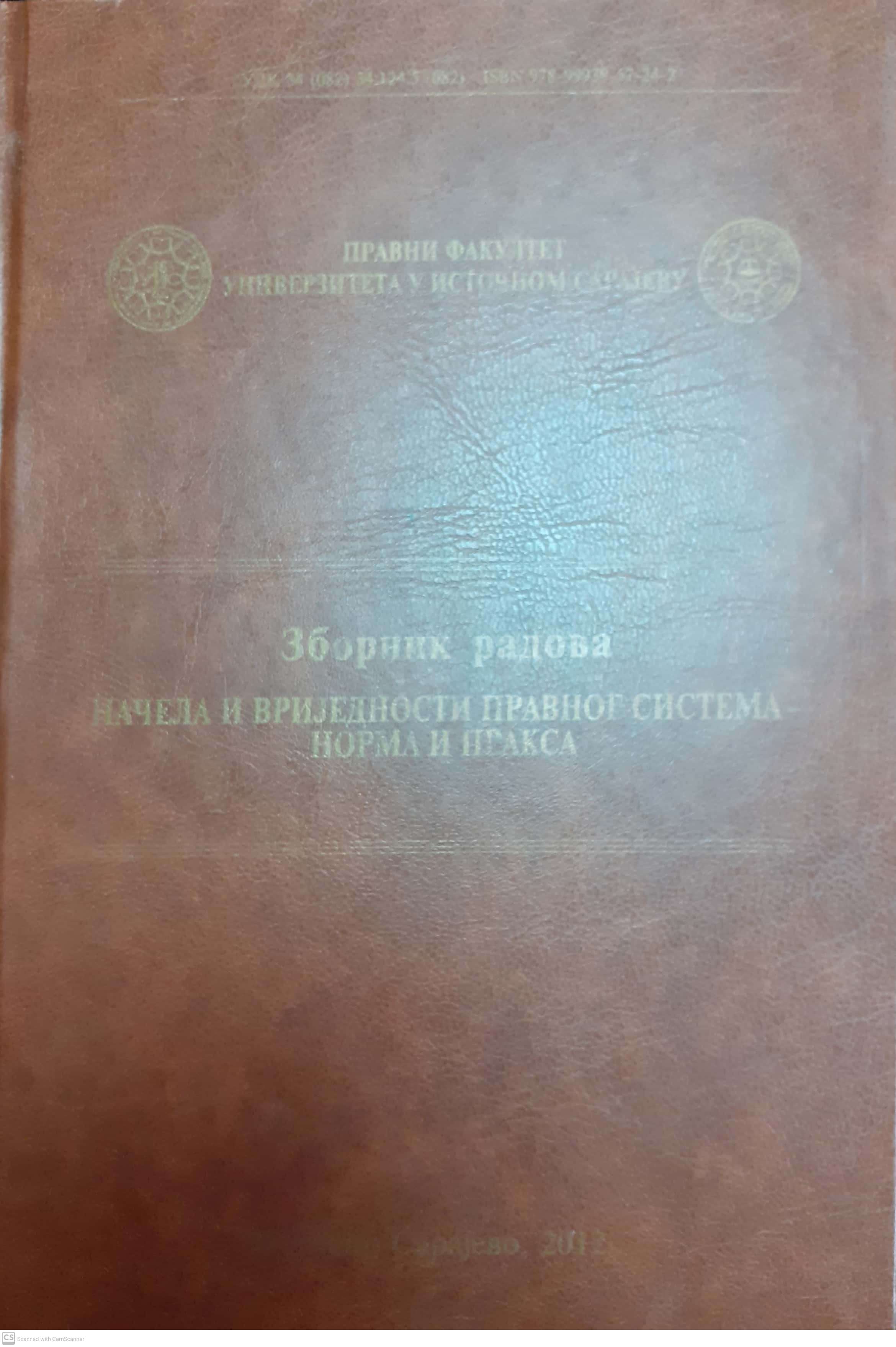Белешке о елементима који обликују статус нотара
Notes on Elements That Form Status of Notary Public
Author(s): Dragana Knežić-Popović
Subject(s): Law, Constitution, Jurisprudence
Published by: Правни факултет Универзитета у Источном Сарајеву
Keywords: Notary public;Status;Changes;Legal nature;Supervision;Numerus clausus;
Summary/Abstract: Changes which recently affected the public notariat refer to the status of notary public and are of great importance. Some of them are such as to raise the question whether the public notariat will be able to retain its traditional physiognomy. The paper highlights the importance of some of the elements of the status of the notary public (legal nature of the activity, the rule of numerus clausus, supervision), changes in relation to them are conducted and consequences of these changes on the status of the notary public as well as the notary’s profession itself. In some of the elements of the status changes that means natural evolution, in accordance with legal and general social development are observed, while in other elements the status of the notary public is facing essential changes that lead to the specific character of the legal profession as a mixture of public services and freelancers. Radical changes in understanding the legal nature of the public notariat are connected with six Judgments of European Court of Justice dated 24 May 2011, in relation to the six disputes from the field of public notariat, which the European Commission commenced against six member States. In them, the Court of Justice argues that the notary activities, as defined in the law of the respondent States, do not participate in performance of public authorizations in sense of Art. 45, para. 1 EU: therefore, the condition of citizenship that is required for admission to the profession of notaries public in these countries represents discrimination based on nationality, prohibited by Art. 43 of the EU Treaty. Denying that the notary public performs public authorizations means breaking the link between the State and the public notariat, which shall be directly reflected in the public document as a final product of this relationship. In this way the public notariat is put in private-law regime of business together with other private legal and consulting professions. Impacts of the Anglo-Saxon law on these Judgments are recognized so the adapted solutions have legal and political character. The changes are observed with the other form of elements of the status of notary public – numerus clausus, which becomes increasingly numerus controlatus, even with a certain tendency to virtually vanishing. The traditional rule of public notariat is that the notary positions are limited (numerus clausus). The limitation is related to the layout area and the deployment of notary offices in them, which is the solution and in the interests of both clients and a notary public. However, the tendency of gradual liberalization of the profession leads to the abandonment of this rule, which has the effect of politically-volontaristic recruitment of notary public. Supervision as an element of status of notary public indicates, with comparative-law differences, changes which are expected necessary for adjustments and refinements that lead to better performing activities. More structured and comprehensive supervision of notaries public general characteristic of the modern organization still shows a strong link between notary public and the State.
- Page Range: 85-105
- Page Count: 21
- Publication Year: 2011
- Language: Serbian
- Content File-PDF

